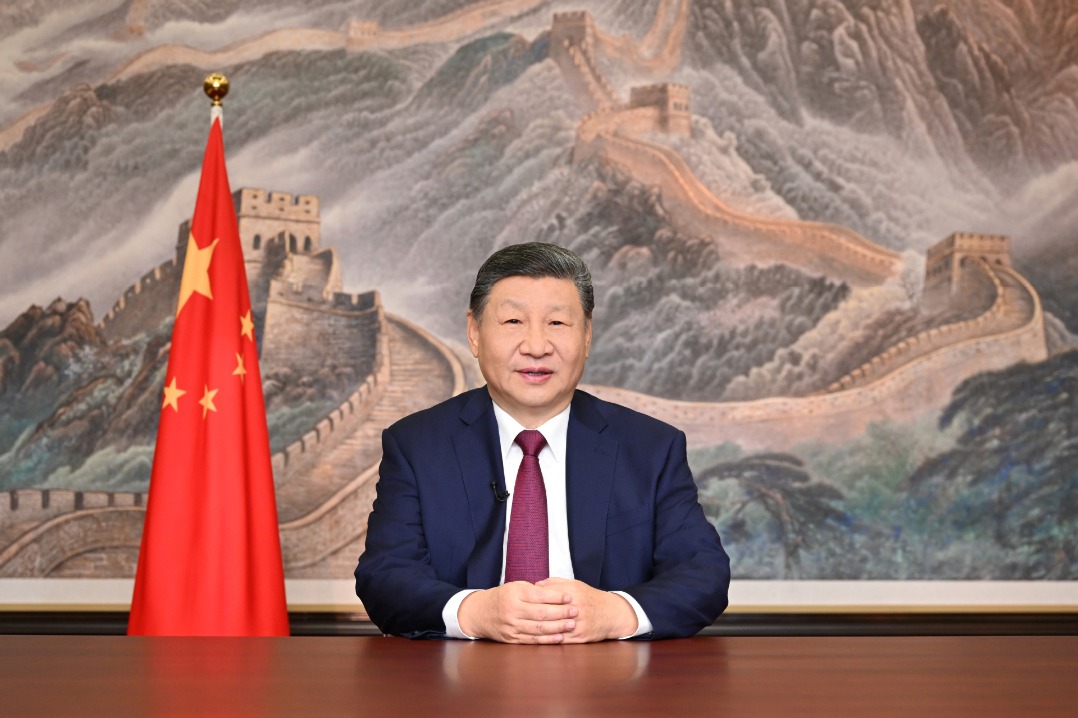Solving a continent's food crisis


China's pioneering efforts are helping African nations develop their agricultural sectors
Thanks to Africa's rich natural resources, the continent in recent years has achieved rapid economic development, but there is still room for huge growth in agricultural production.
According to the African Union, more than 60 percent of the world's uncultivated arable land is to be found on the continent. Only 17 percent of the continent's arable land is in use. With global food prices continuing to rise, agriculture has become a focus for many countries that plan to invest in Africa.
For various reasons, Africa has failed to achieve food self-sufficiency. This food crisis has seriously hampered economic development and the pace of poverty eradication, which have become key factors in social instability.
Well aware of this, African countries have been increasing investment in agriculture, especially in attracting foreign investment and bringing in advanced technology and experience.
Africa's agricultural sector needs foreign cooperation to develop a feasible long-term plan. More than a dozen African countries, such as Guinea and Ethiopia, are keen to strengthen agricultural cooperation with China to resolve their financial and technical problems.
Even countries in better situations, such as Egypt and South Africa, also hope to expand agricultural cooperation with China. On the other hand, Chinese agricultural products, labor, production and related equipment have already shown signs of being in surplus. There is an urgent need to seek new development areas.
China's large state-owned enterprises, such as China State Farms Agribusiness Corp, Jiangsu Agribusiness Group and China-Africa Agriculture Investment Co have already carried out major agricultural projects in Africa relying on their own expertise in irrigation, water conservancy, infrastructure, production and management as well as after-sales services and marketing of products.
According to the China Chamber of International Commerce, as of July 2012, 174 Chinese private enterprises had invested $320 million in African agriculture and directly contributed to the creation of more than 42,000 local jobs. This has also provided African governments with a stable source of revenue and even helped some countries to export agricultural products.
Compared with state-owned enterprises, Chinese private companies have a more distinct competitive advantage in investing in African agriculture, especially in the choice of projects, which can be more flexible, more decentralized and more market-oriented.
Datong Group is a typical example. The company achieved good economic benefits in Senegal, Cote d'Ivoire and Mozambique by planting sesame. Since Jan 1, 2005, China has given some of Africa's least-developed countries duty-free treatment for exports to China. Sesame seeds are on that list and this offers tremendous opportunities for sesame imports from Africa.
Compared with China, Africa's land and labor costs are relatively low, an important incentive for Chinese private enterprises to invest in the continent. In addition, the Chinese government set up the China-Africa Agricultural Cooperation Special Fund for the establishment of an agricultural cooperation management system. It provides agricultural investment and political risk guarantees for Chinese enterprises operating in Africa.
Meanwhile, the Chinese government tries to simplify approval procedures for private enterprises to go abroad and to extend bank loan repayment periods for Chinese enterprises investing in African agriculture.
When conducting foreign exchange risk reviews, the government also takes into account the characteristics of agricultural projects, allowing no return of profit margin.
With capital guarantee from the China Development Bank and policy support from the State Administration of Foreign Exchange, Qingdao Ruichang Cotton Industrial Co has engaged in cotton cultivation management in Zambia, Malawi, Mozambique and Zimbabwe, hiring 1,300 local managers, involving more than 20 million African farmers and covering 500,000 hectares of land. The company has built six ginning factories and two oil mills in Africa. The extracted oil sells directly in the local market.
In addition, there are many individual agricultural investors active in Africa or dealing with businesses on the continent. At present in Baoding, Hebei province, 12,000 people are involved in grain cultivation, animal husbandry and cash crop-related farm businesses with 19 African countries.
For a long time, there was a huge disparity between Africa's agricultural resources and its low processing capacity. China already has relatively mature technology in reprocessing raw materials. Many Chinese private enterprises have stable lists of customers; some even have their own research and development agencies. By continuously improving their products to suit African conditions, they quickly discover more potential in the markets there.
Many Chinese private enterprises cooperate with domestic universities and buy their research results to open up the African market.
Zhejiang Agricultural University helped the University of Yaounde in Cameroon establish a microbiology laboratory and successfully extracted alcohol from locally produced cassava to brew beer. This has earned Cameroon a lot of foreign exchange income.
Nanjing Agricultural University helped Egerton University in Kenya set up horticulture laboratories specializing in soilless cultivation of mushrooms and vegetables, and this also achieved good economic results.
These research results are what the local people need, especially if they open up possibilities for mass production. This trend has also created more opportunities for Chinese private enterprises to develop new markets.
The author is a researcher at the Chinese Academy of Agricultural Sciences.
(China Daily Africa Weekly 06/28/2013 page9)
Today's Top News
- Full text: Chinese President Xi Jinping's 2026 New Year message
- Poll findings indicate Taiwan people's 'strong dissatisfaction' with DPP authorities
- Xi emphasizes strong start for 15th Five-Year Plan period
- PLA drills a stern warning to 'Taiwan independence' separatist forces, external interference: spokesperson
- Xi, Putin exchange New Year greetings
- ROK leader's visit to help boost bilateral ties






























